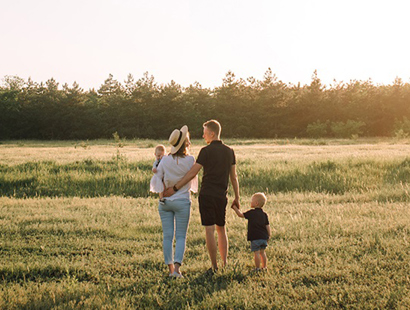
Seen but not heard: the child’s voice in the family court system
Following publication of the report ‘uncovering private family law: how often do we hear the voice of the child?’ on 21 February, associate Mae Al-Omari weighs in on its findings.
A report by the Family Justice Data Partnership has been released exploring the extent of children’s participation in family court proceedings and whether or not their voice is actually heard throughout the process. The results are deeply concerning: whilst cases are initiated to determine the arrangements for a child and the shape that their life will take in the future, their own voices are not being heard in a significant amount of private family law cases in England and Wales.
What does it mean to hear a child's voice in court proceedings?
Many people assume that the adults involved in a case will know what’s best for a child. So, what does it actually mean to listen to a child in the context of court proceedings? In the children’s team at Russell-Cooke, we are instructed by children’s guardians and meet with children and teenagers regularly. We are required to demystify the legal process and clearly set out the picture for them as a starting point. It is important to communicate what they actually say and not what we think they should say in the context of familial breakdown, whilst ensuring the child is safeguarded in the process. It is vital that children know they are being listened to. After all, does this decision not impact them more than anyone?
Key findings from the report
- In almost half of the private law cases studied, there was no indication that the children concerned participated in their case
- In England, two-fifths of children aged ten to 13 and a greater proportion of older teenagers had not formally participated in the court proceedings; a similar pattern was seen in Wales
- A higher proportion of children living in more deprived areas had participated in some way, compared to those living in the least deprived areas (56.1% compared to 50.6%)
- Children’s participation across the six court circuits in England varied significantly
- Children’s participation is more common in cases which last longer
-
Almost 50%
of cases studied had no indication of child participation -
Two-fifths
of children aged 10-13 had not participated in court proceedings (England) -
56.1%
of children living in more deprived areas had participated in cases -
50.6%
of children living in the least deprived areas had participated in cases
How can the courts hear a child’s wishes and feelings?
The Children Act 1989 states that the court must have regard to the ascertainable wishes and feelings of the child when making decisions. This is clearly not happening consistently across the board.
Section 7 report
There are a number of ways the court can ascertain a child’s wishes and feelings. This could be achieved by way of a Section 7 report, prepared either by an officer of Cafcass, or the local authority if there has previously been some local authority involvement with the family. As part of their enquiries, the author of the Section 7 report will usually speak to the child concerned in order to ascertain their wishes and feelings.
Guardian
In more complex cases, the court can join the child as a party to the proceedings. In these cases, a guardian will be appointed under rule 16.4 of the Family Procedure Rules 2010. The guardian, who is usually an officer of Cafcass, will get to know the child and provide the court with their independent view through a family solicitor.
Our team goes to great lengths to ensure that children’s voices are being heard as much as possible, whilst always having regard to the overall safety and wellbeing of the child. The child must remain at the heart of the process always, which is why we do what we do.
The full report can be be viewed via an online PDF from the Family Justice Data Partnership.
Mae Al-Omari is an associate in the children law team, advising on a range of both private and public law children matters. She has considerable experience in representing parents where there are concerns of domestic abuse, neglect, and drug and alcohol misuse.
Get in touch
If you would like to speak with a member of the team you can contact our family and children solicitors by telephone on +44 (0)20 3826 7520 or complete our enquiry form.




